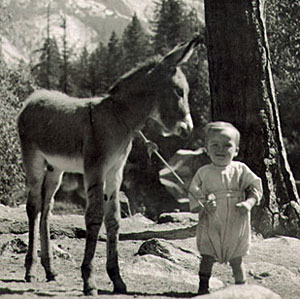[Duncan to Levertov, 13 May 1963]
convention as "form" =
goes along with the natural is formless; man puts the world in order//or(2) with God formed the world as a paradigm in the beginning and disorder enterd thru man's sin. Only by conventicle, good behaviour, does man return to the lost order. A poem (subject always to man's sinfulness) attempts to atone by obedience to prescription. Here freedom = (a) disorder or (b) sin.
organism as "form" =
all experience is formal – We feel things at all only in so far as we awake to the form. Here the form of the poem is the feeling (and where form fails, feeling fails). "Inner" and "outer" are, if we could grasp the terms of cosmic form, in tune. We have only to discover the scale (so here I am organic as well as linguistic).
"linguistic" form =
the artist uses language to make forms, and in this he [is] in a creature/creator relation to a god who is also creature/creator of the whole. Where "organic" poetry refers to personal emotions and impressions – the concourse between organism and his world: the linguistic follows emotions and images that appear in the language itself as a third "world;" true to what is happening in the syntax as another man might be true to what he sees or feels.
free verse =
the poem does not find or make but expresses, and the poem has its virtue in the ecstatic state or emotional state aroused by rhythms and rime even, where the poet can pour forth what he feels//and/or God speaks thru the poet once his voice is free. Here form = restriction I'm thinking of a Hassidic interpretation of the law against making a graven image meaning that speech should not be made in that sense but speak from the heart. Free verse just doesn't believe in the struggle of rendering in which not only the soul but the world must enter into the conception of the poem. Experience is an engagement and responsibility to outer as well as inner.
Two forms of free verse would be Amy Lowell's impressionism and Ginsberg's "Howl."
[Duncan to Levertov, 28 November 1961]
You see you have three presences for me, Denny, that touch the deepest life feeling. One is the Denise I have been able openly to speak of, the companion in art – where in certain poems of yours, by grace of your “poet,” I am brought into that heart of life that poetry opens: then this poet you are I love because you are most true. No . . . it seems more that through loving this you so I come to love what is most true. And then, sometimes you are a poetic conscience for me. Not that my truth will be like yours – but that just where I fail my own poet, I betray this love.
Then there is, related, another presence: an idea of you or something you mean to me – yet it also seems to be really you and to reach the heart. I am troubled here, Denise, to make it clear, but just as my poet has existed in the light of your poet, my self does. And the "to thine own self be true" has existed, for always now it seems, as if that meant being true in your eyes. So I am always just that shy of, just that troubled in thinking of your love or mine because so often I seem to fail so miserably to "be myself." Maybe, I wanted to say "Be loyal to my self" but also "love me as I am not my self."
The third is just your real actual presence, where I have never felt these ghosts of conscience. When I've been with you, Denny, you are at last just you and I could no possibly not be just me as I am. That's what I did want to write most – how real all the rest is – but the pure joy, all the ever-lasting delight of these times in my life when I am actually with you.
 |
| Robert Duncan, Yosemite Park, 1922 |
)))((((((
ReplyDelete(-)...(-)
....U....
.[____].---{groovin' poems}